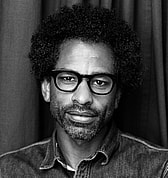Editor’s note: The following article is an op-ed, and the views expressed are the author’s own. Read more opinions on theGrio.
When I started conceiving my podcast “Being Black: The ’80s” I asked myself what combination of song and political issue would help me show you what I wanted to do in this show. Because this show is different than anything you’ve ever heard. I wanted to talk about Black political issues of the ’80s through the lens of great songs from the decade. I landed on Tracy Chapman’s “Fast Car” as a great way to start because it was a song that would let me dive into three of the biggest political issues of the ’80s.
“Fast Car” is a story song about a woman who wants to escape poverty. The ’80s was a time when the number of Black people in poverty expanded, so “Fast Car” gave me a way to speak to that. That’s one of the core messages of the song, but the way the world came to know about the song also gave me a way to talk about a critical idea from the ’80s. See, Chapman’s ascension as a star owes a lot to Afrocentrism and the diasporic mindset.
In the ’80s, a lot of people thought and spoke of Africa as an extension of Black America. We wore kente cloth and protested on behalf of Nelson Mandela. We thought of Africa’s political problems as our own because we felt like we could not truly be free until Africans were also free. Those sentiments burned hottest around apartheid, South Africa’s racist system of governing. In 1988, when Nelson Mandela was turning 70 after having been in prison for 25 years, there was an internationally televised concert honoring him and featuring many of the biggest recording artists of the day. Hundreds of millions of people watched because there was so much attention around Mandela and apartheid then.
When the day of the concert began, Tracy Chapman was a new artist who very few people had ever heard. But as soon as she launched into “Fast Car,” that powerful, plaintive, bluesy, folksy, unforgettable song, it was like the whole world stood still and listened and said who the hell is that? That performance turned her into a superstar. But Chapman would not have even been on that stage without help from another of the big ideas of the ’80s, affirmative action.
In the ’80s, affirmative action was helping Black and brown people get into schools that we had not had access to in earlier generations. Chapman grew up poor in Cleveland. Single mom, single child. When she was an early teenager, she was already a great guitar player but her life was not necessarily moving toward stardom. No matter how talented you are, talent alone does not guarantee success. The climate around you has to lift you up somehow.
Someone in Chapman’s world told her that she could get a better education, and maybe a new lease on life, if she went to one of the tony private boarding schools in New England. Chapman and her mother knew nothing about that world. Chapman got into the Wooster School in Connecticut thanks to A Better Chance, an affirmative action organization that helped connect poor Black kids and wealthy private schools. That changed her life. She graduated and then got into Tufts University where she joined the coffee shop music scene and met someone who helped her get into the music industry. Affirmative action opened up a whole new world for her, and it helped her achieve her dreams.
So you can see how I found in “Fast Car” a way to talk about big political issues like the rise of Black poverty during the ’80s, the importance of Afrocentrism, and the impact of affirmative action. Once I had that structure nailed down, I moved on to episode No. 2—“My Brother’s A Basehead” by De La Soul, the true story of how Posdnous’s family dealt with Pos’ brother being a crack addict. That let me begin to tell the story of the crack epidemic, which was definitely one of the big, life-shaping events of the ’80s.
Please check out my new podcast “Being Black: The ’80s.” All episodes are available now wherever you get your podcasts.

Touré is a host and Creative Director at theGrio. He is the host of the docuseries podcast “Being Black: The ’80s.” He is also the host of the podcast “Toure Show” and the podcast docuseries “Who Was Prince?” He is the author of eight books including the Prince biography Nothing Compares 2 U and the ebook The Ivy League Counterfeiter.
TheGrio is FREE on your TV via Apple TV, Amazon Fire, Roku, and Android TV. Please download theGrio mobile apps today!

